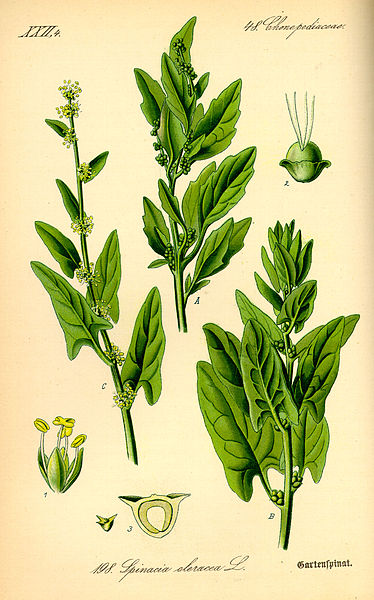The Real Scoop On The Health Care Law!
![]()
THE REAL SCOOP ON THE HEALTH CARE LAW! THE CASE OF THE SHRINKING WORK FORCE (ISSUE 117)
By Diane Gold
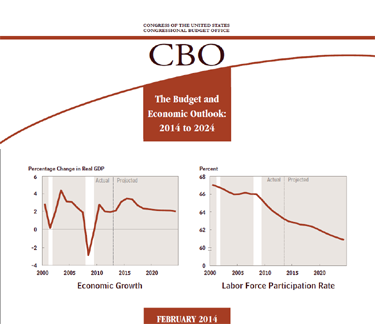 The Health Care Law Is Projected To Shrink The Work Force. This headline looks at full-time workers in an estimate from the Congressional Budget Office. According to Jason Furman, Council Of Economic Advisors Chairman, the change in number of workers has to do more with people’s choosing part-time assignments rather than that employers are deleting jobs to avoid employee’s health insurance costs.
The Health Care Law Is Projected To Shrink The Work Force. This headline looks at full-time workers in an estimate from the Congressional Budget Office. According to Jason Furman, Council Of Economic Advisors Chairman, the change in number of workers has to do more with people’s choosing part-time assignments rather than that employers are deleting jobs to avoid employee’s health insurance costs.
Let’s remember that the Affordable Care Act subsidizes those who work, for the most part. And, if people have enough money to pay for their insurance and their lives; they are contributing to our economy whether it’s with a full-time, part-time or self-employment situation. This is the exercise of beautiful freedom of choice.
THE HABIT
Here’s the habit, though. We, the sheep of America, have been groomed to go to school, strive to get a corporate or non-profit job, in part, for the health insurance benefits provided. Getting the right job that happens to include health care benefits is fabulous. It’s not the only way, and now, it is becoming a less chosen option.
 Certainly, we are bound to contribute to humanity in a way that sustains us in some financial way and in order to leave a personal human legacy. We don’t have to get it by having a J-O-B in an environment, where group health care was the only reason we took the job. We can be CRE-8-TIVE and do what we love, which, for most people, is not what they do at their J-O-B. They can be small business owners, putting them in a category to be able to pay for themselves, but out of the headlined category: full-time W-2 worker, about whom the CBO is estimating.
Certainly, we are bound to contribute to humanity in a way that sustains us in some financial way and in order to leave a personal human legacy. We don’t have to get it by having a J-O-B in an environment, where group health care was the only reason we took the job. We can be CRE-8-TIVE and do what we love, which, for most people, is not what they do at their J-O-B. They can be small business owners, putting them in a category to be able to pay for themselves, but out of the headlined category: full-time W-2 worker, about whom the CBO is estimating.
THE ARTIST
There are those of us lucky enough to have trained in a field that we adore and actually work within that field. Or there are those whose job title is “artist,” and we have been fortunate or talented enough (both) so that people don’t think twice about calling us “artists,” which, of course, brings in income from the many who love us. (We are in the habit of calling people who paint, play music, write “people who fool around with art” if they don’t have popularity, and, therefore, aren’t financially sound, unfair as this can be.)
THE ENTREPRENEUR
 There is so much creative energy that we all possess that is channeled by some into entrepreneurship. The people in this division make some of the breakthroughs that make our country great and make us happy Americans. We are thriving spiritually because of choices like entrepreneurship. Yes, there are just as many, if not more people who have that same spark of invention who don’t make a living at it and struggle. But they deserve the time to keep working at it.
There is so much creative energy that we all possess that is channeled by some into entrepreneurship. The people in this division make some of the breakthroughs that make our country great and make us happy Americans. We are thriving spiritually because of choices like entrepreneurship. Yes, there are just as many, if not more people who have that same spark of invention who don’t make a living at it and struggle. But they deserve the time to keep working at it.
THE FREEDOM
As I see the health care law headline about shrinking jobs, it makes me grateful to be American. Why? Because I believe America’s greatest benefit is its FREEDOM. We are free to be our wonderful selves, in all our creative glory, to choose what is right for us, based on our current situation. What may be seen as a bane in shrinking corporate workers could produce the next breakthrough in health care, technology, space, famine, peace. Isn’t that huge!
SPIRITUAL HEALTH
 It’s fair to say that what keeps us happy and healthy is our own personal foundation. When we have a belief system or a set of ethics by which we live; this drives us to do act the way we do and make the decisions that we do.
It’s fair to say that what keeps us happy and healthy is our own personal foundation. When we have a belief system or a set of ethics by which we live; this drives us to do act the way we do and make the decisions that we do.
As I see it, this category is the most important one we have. If we are personally “together,” as they used to say back in the day; we have what it takes to go on from there.
If we have our own value system, we know how to act as human beings, not just based on what feels good to us (hedonism), but based upon how we can benefit humanity and create a legacy of our own. I’m talking about the fact that building our virtue builds our legacy of choice. Spiritual health may not collect a billion dollars in money. Yet, if we have set up an ethic that helps others or creates harmony; we contribute spiritual health to the world.
When we work less, we have more time for this type of growth.
THE HEALTH CARE LAW
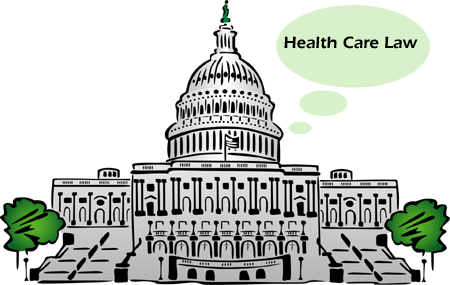 The Health Care Law aka The Affordable Care Act aka Obamacare is part of the legacy of Barack Obama, 44th President of the United States. It allows for people previously uninsurable due to health issues to be insurable. It allows for people who could not afford health insurance to be subsidized enough to get it.
The Health Care Law aka The Affordable Care Act aka Obamacare is part of the legacy of Barack Obama, 44th President of the United States. It allows for people previously uninsurable due to health issues to be insurable. It allows for people who could not afford health insurance to be subsidized enough to get it.
Another feature of this policy is that some citizens get to choose a lifestyle that does not include working full-time in a distasteful position just for the health care benefits. Although most of us cannot afford to work part-time or at our dream task; the law, formally called the Affordable Care Act, offers a new and unscheduled benefit: that of personal freedom.
We knew the ACA would give us more security, a way to reduce health care costs by having many more insured and not expending enormous medical costs by emergency room health care. No one talked about the freedom that might become available to some. According to the predictions, the economy will not suffer from these choices because we will have more contented citizens who maintain a higher level of health due to peace of mind from health coverage and spiritual wholeness and we will be using less expensive health care services.
CONCLUSION
I’m quite a fan of the ACA, since I have seen, first hand, its benefits. As with most headlines, though, it’s important to evaluate alleged proof and investigate media slant. In the case of the Health Care Law, the prediction of shrinking of employees is not a bad thing. It may mean people are choosing to work less and spiritualize more. It may be the trend of our current generations’ understanding of the importance of personal growth. It definitely will have to do with our lowering our health care costs, another plus.
This example of headline grandstanding is an opportunity to step back and see for ourselves. It’s also a good time to inventory our own choices that may or may not be possible for us at this time but that may give us some insight.
ACTION STEP INVENTORY
This might be eye opening and only takes a minute. Answer as if you were in the particular situation, even if you are not. And actually ask yourself the question. When I asked myself one at a time, they had more of an impact:
1) On scale of 1 to 10, 10 being high, if you were single, would you rather have a steady large organizational job or a steady part-time job and the time and freedom in which to be creative?
2) On scale of 1 to 10, 10 being high, if you were single, would you rather cut down on spending to afford a steady part-time job and the freedom to be creative or keep your steady corporate or non-profit job?
3) What is more important to you, money or spiritual health?
4) If you were responsible for a family, what would you want to show your kids, that it’s more important to provide luxury for them and have a corporate job that you don’t like or live with no frills and have a part-time job which afforded you time for creativity, spirituality and family?
5) Are you surprised at yourself?
___
If you would like to share your answers, please hit reply in your email program with the questions answered.
___
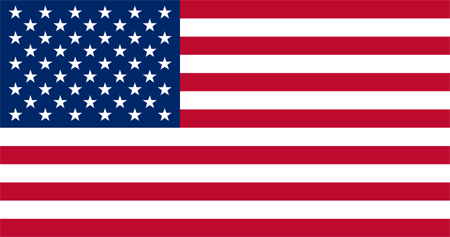 Finally, it seems as if freedom of choice is the reason for the shrinking employee headline. We’re all different. There’s no one way to be. And, through the ACA, the United States has just happily extended our freedom.
Finally, it seems as if freedom of choice is the reason for the shrinking employee headline. We’re all different. There’s no one way to be. And, through the ACA, the United States has just happily extended our freedom.
![]()
FEEDBACK
We value your feedback very much. Please leave a comment below.
Please LIKE us on the website and at WarriorsOfWeight on Facebook. Thanks.
![]()
DIANE GOLD, AUTHOR
Diane Gold, Founder of Warriors of Weight, Turning Habits Into Health, is a mentor in tai chi, kung fu and meditation, a music, fitness and stress expert, dedicated mom, studying plant-based nutrition and habit change.
She believes we all deserve health care. She says,
“I believe it is a right in the civilized world. Because of the Affordable Care Act, more people can be insured. A brilliant feature that is a secret benefit is the reduction in full-timers that is predicted. These are not the dedicated folks whose work is their passion. It is the people who have yet to find their passion. And their part-time status may lead them to it which will lead them to become more productive citizens to benefit us all.”
![]()

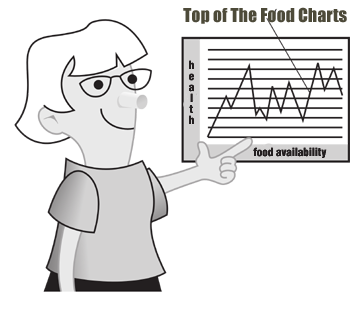 We would think that healthy eating in the United States is easy and that we are at the top of the charts when compared to other countries.
We would think that healthy eating in the United States is easy and that we are at the top of the charts when compared to other countries. Farmers use some method of offsetting bugs and weeds on their crop. Many use toxic pesticides which change the basic structure of the fruit or vegetable being grown or add some new chemical structure to the plant by pesticide exposure. This makes the food less healthy.
Farmers use some method of offsetting bugs and weeds on their crop. Many use toxic pesticides which change the basic structure of the fruit or vegetable being grown or add some new chemical structure to the plant by pesticide exposure. This makes the food less healthy.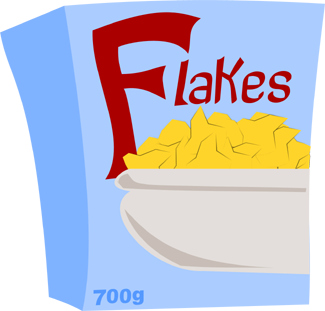 More packaged food than not is in our supermarkets. We use corn and soy, most of it genetically engineered (GE), and sugar, half of it GE, to create fast food with lovely colors. Instead of selling snacks that are fresh food, we buy boxes or bags with ingredients we can’t pronounce. Older generations did it, meaning our parents or grandparents; so why shouldn’t we?
More packaged food than not is in our supermarkets. We use corn and soy, most of it genetically engineered (GE), and sugar, half of it GE, to create fast food with lovely colors. Instead of selling snacks that are fresh food, we buy boxes or bags with ingredients we can’t pronounce. Older generations did it, meaning our parents or grandparents; so why shouldn’t we? We are pleasure seekers and taste mongers with our taste buds being bombarded with new combos of flavor. We will do anything for the next delight, whether it be food, body sensation, exercise, drink, color, gadget. What this means with food is that, even though we know that healthy food is crucial, we choose to eat highly fatty, salty, oily foods that taste unbelievably good. And we have developed the habit of eating portions that are much too large, just because we have developed the habit by being served too much in a restaurant or at home.
We are pleasure seekers and taste mongers with our taste buds being bombarded with new combos of flavor. We will do anything for the next delight, whether it be food, body sensation, exercise, drink, color, gadget. What this means with food is that, even though we know that healthy food is crucial, we choose to eat highly fatty, salty, oily foods that taste unbelievably good. And we have developed the habit of eating portions that are much too large, just because we have developed the habit by being served too much in a restaurant or at home.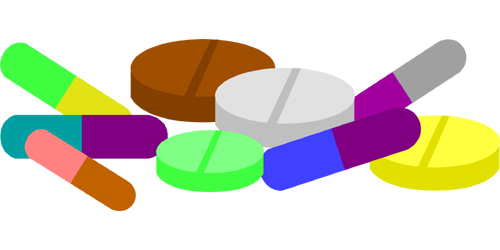 Antibiotics do not work against viruses. They also strip the body of the microbiomes needed on an hourly basis in the human digestive tract. A study at Washington University School of Medicine, St. Louis, Mo., published in Pediatrics in 2012, swabbed the nasal passages of young children with unexplained fever and, for control, children without fever. Those with fever had 5 X the viral load of those without. The study’s objective was to to determine whether a quick nasal swab could improve the mistaken prescribing of antibiotics for viral sickness, which always harms microbial balance. The jury is still out, in my opinion, for 2 reasons: the antibiotic industry is massively profitable and there are some very nasty bacteria that can kill the patient if antibiotics are not given in time.
Antibiotics do not work against viruses. They also strip the body of the microbiomes needed on an hourly basis in the human digestive tract. A study at Washington University School of Medicine, St. Louis, Mo., published in Pediatrics in 2012, swabbed the nasal passages of young children with unexplained fever and, for control, children without fever. Those with fever had 5 X the viral load of those without. The study’s objective was to to determine whether a quick nasal swab could improve the mistaken prescribing of antibiotics for viral sickness, which always harms microbial balance. The jury is still out, in my opinion, for 2 reasons: the antibiotic industry is massively profitable and there are some very nasty bacteria that can kill the patient if antibiotics are not given in time. How long is the nutrition course in our schools? What? There isn’t one, or there was that one day when Chelsie’s mom, the chef, came in? We learn how to read, how to write, how to add and subtract numbers so that we can go to the bank and shop, but is there an ongoing course to teach us how to sustain our health through food or teach us what to buy based on budget?
How long is the nutrition course in our schools? What? There isn’t one, or there was that one day when Chelsie’s mom, the chef, came in? We learn how to read, how to write, how to add and subtract numbers so that we can go to the bank and shop, but is there an ongoing course to teach us how to sustain our health through food or teach us what to buy based on budget? 1)
1)
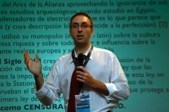 “Speak out,”
“Speak out,” What transpired for various reasons has been a culture of speakers with no solutions, many just “orating for ego” (good T-shirt). Since there has not been a focus solving vs. complaining in modern times, it is more common to hear groups of complainers than groups of problem solvers. Plus, it’s more difficult to create than to condemn (another good T-shirt, “create, don’t condemn”).
What transpired for various reasons has been a culture of speakers with no solutions, many just “orating for ego” (good T-shirt). Since there has not been a focus solving vs. complaining in modern times, it is more common to hear groups of complainers than groups of problem solvers. Plus, it’s more difficult to create than to condemn (another good T-shirt, “create, don’t condemn”).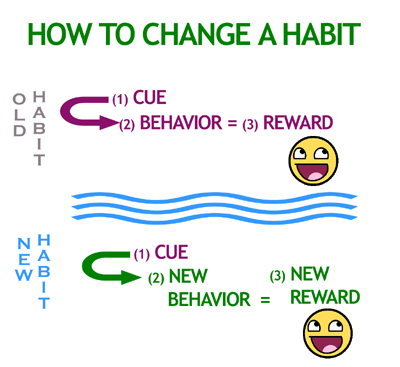 In order to solve vs. complain, we follow the process for any habit change: cue, replace the old action, reward.
In order to solve vs. complain, we follow the process for any habit change: cue, replace the old action, reward.
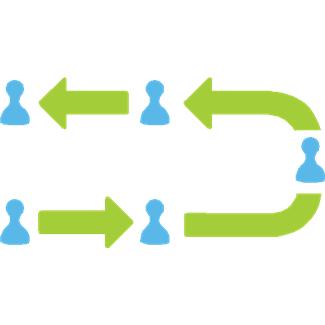
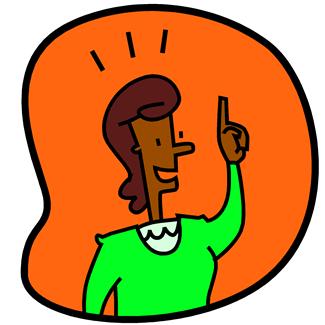 Now that we are evolved enough to understand this, it is time to consider the solution process with every speech. We may have to change our habit, if we are used to being critical, not constructive. We can certainly slap the wrist of education for lack of emphasis on oration without solution. And we can change how we educate from now on.
Now that we are evolved enough to understand this, it is time to consider the solution process with every speech. We may have to change our habit, if we are used to being critical, not constructive. We can certainly slap the wrist of education for lack of emphasis on oration without solution. And we can change how we educate from now on.
 I saw a photo and exercise routine one of my (actual) friend’s shared on a social networking site. My friend is an avid athlete and 30-year yogi, which means she is strong and fit. She communicates with many people who are also strong and fit. So when she shared a plank photo and instructions for a plank exercise, starting with 20 seconds per day, she was probably directing it to the fit crowd. I immediately responded to her post with an
I saw a photo and exercise routine one of my (actual) friend’s shared on a social networking site. My friend is an avid athlete and 30-year yogi, which means she is strong and fit. She communicates with many people who are also strong and fit. So when she shared a plank photo and instructions for a plank exercise, starting with 20 seconds per day, she was probably directing it to the fit crowd. I immediately responded to her post with an  Most people are attracted to an interesting workout photo that gets passed around. What was missing, and I’m not pointing fingers, was a super big warning sign. Having owned an active martial arts school for over 15 years, I have heard many stories about injury due to improper workout. I have helped show many a newbie student why proper alignment is everything and that haste can cost precious training time as we heal from beginner, didn’t-follow-directions injuries.
Most people are attracted to an interesting workout photo that gets passed around. What was missing, and I’m not pointing fingers, was a super big warning sign. Having owned an active martial arts school for over 15 years, I have heard many stories about injury due to improper workout. I have helped show many a newbie student why proper alignment is everything and that haste can cost precious training time as we heal from beginner, didn’t-follow-directions injuries.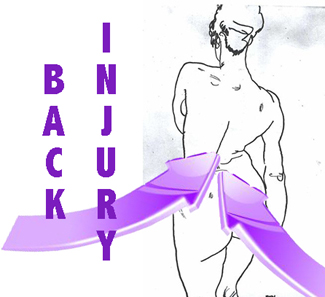 It is extremely easy to hurt the back doing the plank exercise, even though it is a wonderful technique if we have the abs for it. It’s whether or not they are strong enough to hold our entire body upon command. And that is what today’s exercise is about. Back Injury
It is extremely easy to hurt the back doing the plank exercise, even though it is a wonderful technique if we have the abs for it. It’s whether or not they are strong enough to hold our entire body upon command. And that is what today’s exercise is about. Back Injury Most of us want efficiency and want the shortest road toward what we consider perfection that we can take. That means we would like to bypass any frills and get right to the real work. Yet, some exercises, worldwide, put, at least, 50% fluff in them.
Most of us want efficiency and want the shortest road toward what we consider perfection that we can take. That means we would like to bypass any frills and get right to the real work. Yet, some exercises, worldwide, put, at least, 50% fluff in them.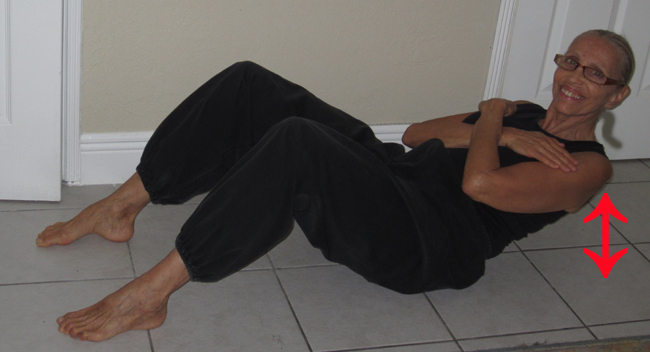
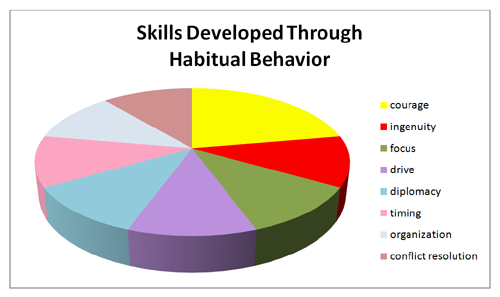
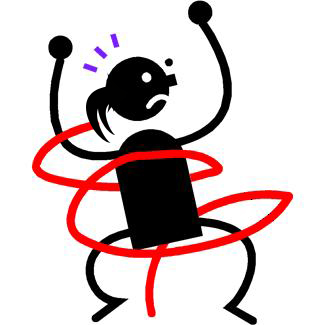 Let’s define habitual behavior as a pattern of action that follows an emotional and/or physical craving that leads to some type of internal intake or ingestion, tick, movement, series of actions, that takes place several times a day, once daily or several times a week, and that, when removed without replacement, causes psychic or physical reaction that can be severely painful. When we change the habit, we actively divert our own attention from the expectation of the old reward we couldn’t live without using the same skill set we created in developing the original habitual behavior; this is how we form a new one.
Let’s define habitual behavior as a pattern of action that follows an emotional and/or physical craving that leads to some type of internal intake or ingestion, tick, movement, series of actions, that takes place several times a day, once daily or several times a week, and that, when removed without replacement, causes psychic or physical reaction that can be severely painful. When we change the habit, we actively divert our own attention from the expectation of the old reward we couldn’t live without using the same skill set we created in developing the original habitual behavior; this is how we form a new one.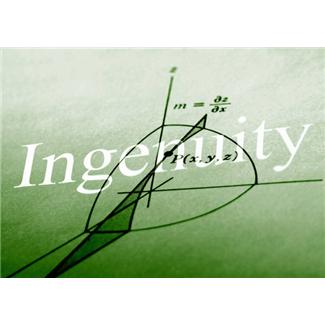 we have ingenuity enough to have devised a way to live with our habitual behavior in our lives,
we have ingenuity enough to have devised a way to live with our habitual behavior in our lives,
 Most of the time, we develop habitual behavior because we experience grief, anger or limited self-esteem. These can come from abuse, crisis, death, sickness and whatever our mind conjures, since feelings are irrational and show up when they show up. Since we have a myriad of valuable skills from our habitual behavior, we are worthy, since worth is calculated by our collection of respectable, attention-getting skills.
Most of the time, we develop habitual behavior because we experience grief, anger or limited self-esteem. These can come from abuse, crisis, death, sickness and whatever our mind conjures, since feelings are irrational and show up when they show up. Since we have a myriad of valuable skills from our habitual behavior, we are worthy, since worth is calculated by our collection of respectable, attention-getting skills.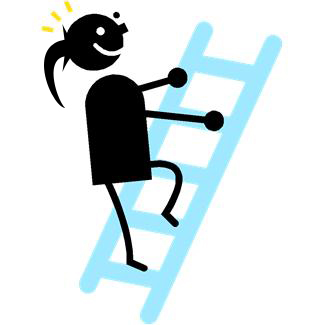
 On September 5, a new study came out in the journal, Science, where germ-free mice were colonized with gut microbes (called “microbiota” in the study itself) from four pair of human twins. Each pair of twin donors contained one obese and one thin human. The recipients of the fecal matter were sterile mice who had no gut microbes until they were exposed to the human microbes.
On September 5, a new study came out in the journal, Science, where germ-free mice were colonized with gut microbes (called “microbiota” in the study itself) from four pair of human twins. Each pair of twin donors contained one obese and one thin human. The recipients of the fecal matter were sterile mice who had no gut microbes until they were exposed to the human microbes.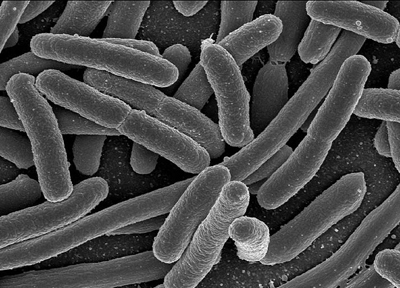
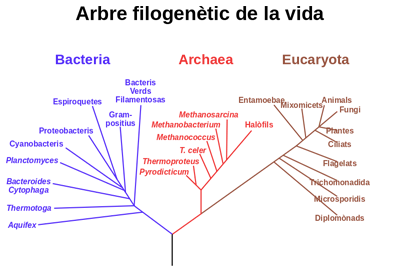


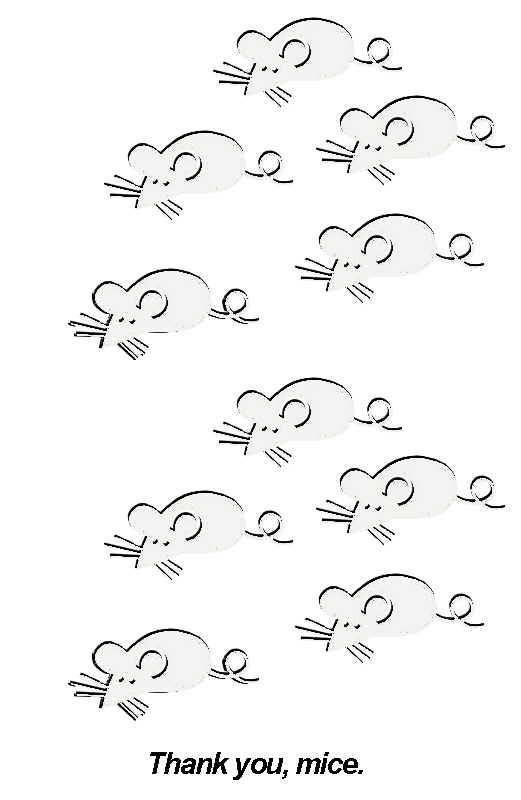
 Whatever our path to happiness, it is what drives us, floats our boat and encourages us to behave the way we do. Sometimes, it can be judged as superficial ego stroking; other times, it is seen as deep, genuine and benevolent. Whatever it is for us, we might be interested to know that our genes, and not just the social networks, can tell the difference.
Whatever our path to happiness, it is what drives us, floats our boat and encourages us to behave the way we do. Sometimes, it can be judged as superficial ego stroking; other times, it is seen as deep, genuine and benevolent. Whatever it is for us, we might be interested to know that our genes, and not just the social networks, can tell the difference. The study included 80 subjects who took a verbal survey, had their blood drawn and data compiled. It turns out that the study clearly indicated different gene expression profiles for those people whose happiness had to do with a goal or higher purpose and those whose happiness was connected with superficial pleasures and instant, short-lived gratification. According to an article in The New York Times on the study findings, Gretchen Reynolds wrote,
The study included 80 subjects who took a verbal survey, had their blood drawn and data compiled. It turns out that the study clearly indicated different gene expression profiles for those people whose happiness had to do with a goal or higher purpose and those whose happiness was connected with superficial pleasures and instant, short-lived gratification. According to an article in The New York Times on the study findings, Gretchen Reynolds wrote,
 It would serve all of us if we used the concepts in this study wisely. Whether we decided to run a store to give free sandwiches to the poor or we decide to work on our own physical fitness so that we can be a better and healthier family member; we would ultimately achieve that deeper happiness because our genes would tell the right proteins to fire so we would live longer and more healthily.
It would serve all of us if we used the concepts in this study wisely. Whether we decided to run a store to give free sandwiches to the poor or we decide to work on our own physical fitness so that we can be a better and healthier family member; we would ultimately achieve that deeper happiness because our genes would tell the right proteins to fire so we would live longer and more healthily.
 Health care costs make it difficult or impossible for all Americans to afford the services they deserve. After surprising a young college student friend of mine from India over the fact that everyone in the United States does not have all the necessities, I decided to look into health care costs.
Health care costs make it difficult or impossible for all Americans to afford the services they deserve. After surprising a young college student friend of mine from India over the fact that everyone in the United States does not have all the necessities, I decided to look into health care costs.
 Although about 1/6 of our income in the United States goes to health care, how can we maintain that health care is a human right if some people can’t afford it? Or do we consider health care a privilege? And, if we step off our continent for a moment and look at the fact that the amount I pay for health insurance per month could pay for the health care of 15 people in most African nations for the same month, or in the Congo or Burma, for 45 people.
Although about 1/6 of our income in the United States goes to health care, how can we maintain that health care is a human right if some people can’t afford it? Or do we consider health care a privilege? And, if we step off our continent for a moment and look at the fact that the amount I pay for health insurance per month could pay for the health care of 15 people in most African nations for the same month, or in the Congo or Burma, for 45 people. 1)
1)
 11)
11)  Health care costs are high due to fees for medical personnel, cost of equipment and facilities, intricacies of technology, cost of research. Because we are in the habit of wasting instead of conserving, we spend more than we have to – in time and in money. When we are ill, we like to see beautiful offices, rather than cheaply appointed office space with cracks, old paint and the smell of age. Sometimes, we even equate the ability of a professional staff with the grandeur of an office. As employees, we want to be paid for our work, and we should be.
Health care costs are high due to fees for medical personnel, cost of equipment and facilities, intricacies of technology, cost of research. Because we are in the habit of wasting instead of conserving, we spend more than we have to – in time and in money. When we are ill, we like to see beautiful offices, rather than cheaply appointed office space with cracks, old paint and the smell of age. Sometimes, we even equate the ability of a professional staff with the grandeur of an office. As employees, we want to be paid for our work, and we should be. Hearing these words brought back a whole series of memories starting with a story my mother told me about her childhood. Now, I know that I have always been an explorer and that if a rule or tradition didn’t make sense to me, I always questioned it. I was encouraged to do so by both my parents.
Hearing these words brought back a whole series of memories starting with a story my mother told me about her childhood. Now, I know that I have always been an explorer and that if a rule or tradition didn’t make sense to me, I always questioned it. I was encouraged to do so by both my parents. So, let’s backtrack to when my mom was one-year-old. (This photo is not my mom. Because of her free spirit, I believe she would laugh if she saw this representation. This photo is used with lots of love and memories of nurturing.) She told me that she loved to see a plate break on the floor, that she would laugh with abandon at this phenomenon. Maybe it was the excitement of seeing the pieces scatter. It was a favorite activity, nonetheless. And my grandfather used to buy her plates so that she could knock them off her highchair so that she could laugh and be free. Yes, he was liberated, too.
So, let’s backtrack to when my mom was one-year-old. (This photo is not my mom. Because of her free spirit, I believe she would laugh if she saw this representation. This photo is used with lots of love and memories of nurturing.) She told me that she loved to see a plate break on the floor, that she would laugh with abandon at this phenomenon. Maybe it was the excitement of seeing the pieces scatter. It was a favorite activity, nonetheless. And my grandfather used to buy her plates so that she could knock them off her highchair so that she could laugh and be free. Yes, he was liberated, too.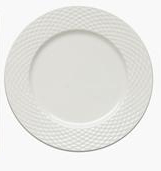 I did not throw plates, but I was encouraged to be my own person, ask questions about anything for the purpose of becoming a productive and liberated person. I can’t swear that my parents were thinking of the word “liberation” when they were raising me. They just saw no need to teach me to be seen and not heard as was and still is a popular method of child-rearing. Personally, I think this method can repress a child’s spirit and disable a child’s curiosity. Respect for elders and familial hierarchy can be taught in many ways, but free speech, in my opinion, should begin at the earliest of ages.
I did not throw plates, but I was encouraged to be my own person, ask questions about anything for the purpose of becoming a productive and liberated person. I can’t swear that my parents were thinking of the word “liberation” when they were raising me. They just saw no need to teach me to be seen and not heard as was and still is a popular method of child-rearing. Personally, I think this method can repress a child’s spirit and disable a child’s curiosity. Respect for elders and familial hierarchy can be taught in many ways, but free speech, in my opinion, should begin at the earliest of ages. Let me clarify that many people raised in the “be seen and not heard” old-school philosophy are successful, happy, shining and wonderfully balanced. There are, however, many of us raised with restrictions every time we turn around, such as don’t speak unless we are asked a question, always be available as a servant to our parents, all friends must be researched for family stature and then brought to the house for approval; we are often stressed, repressed and depressed because of it. Certainly, we are rarely liberated and feel the pain of not being trusted.
Let me clarify that many people raised in the “be seen and not heard” old-school philosophy are successful, happy, shining and wonderfully balanced. There are, however, many of us raised with restrictions every time we turn around, such as don’t speak unless we are asked a question, always be available as a servant to our parents, all friends must be researched for family stature and then brought to the house for approval; we are often stressed, repressed and depressed because of it. Certainly, we are rarely liberated and feel the pain of not being trusted. 2) We don’t speak up due to our self-image. This usually has to do with the fact that we are younger, older, the minority sex in the group, the wrong sexual orientation, a woman whose place (in in someone else’s mind) is in the home, the wrong nationality, religion or socio-economic level.
2) We don’t speak up due to our self-image. This usually has to do with the fact that we are younger, older, the minority sex in the group, the wrong sexual orientation, a woman whose place (in in someone else’s mind) is in the home, the wrong nationality, religion or socio-economic level. 2)
2)

 The scientists who spend time researching what will do what to whom care about the outcome of their work as it will benefit humanity whether they work on drugs or supplements.
The scientists who spend time researching what will do what to whom care about the outcome of their work as it will benefit humanity whether they work on drugs or supplements. Usually, supplement inventors are in the field of medicine outside the allopathic medicine sphere, meaning they are not part of the set of doctors who treat patients only when a disease shows up. They are more part of the set of doctors or medical healers who look at preventing disease from happening in the first place. They have experience treating people on a more personal level, even possibly physically touching their bodies to heal them. Even without the physical aspect, the people who recommend supplements tend to think prevention first, pharmaceuticals afterwards.
Usually, supplement inventors are in the field of medicine outside the allopathic medicine sphere, meaning they are not part of the set of doctors who treat patients only when a disease shows up. They are more part of the set of doctors or medical healers who look at preventing disease from happening in the first place. They have experience treating people on a more personal level, even possibly physically touching their bodies to heal them. Even without the physical aspect, the people who recommend supplements tend to think prevention first, pharmaceuticals afterwards.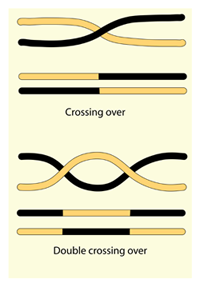 The interesting thing about this, and this is the cross-over point, is that, sometimes when the pharmaceutical industry sees a very lucrative supplement, they move to get it approved as a pharmaceutical so that they can market it.
The interesting thing about this, and this is the cross-over point, is that, sometimes when the pharmaceutical industry sees a very lucrative supplement, they move to get it approved as a pharmaceutical so that they can market it.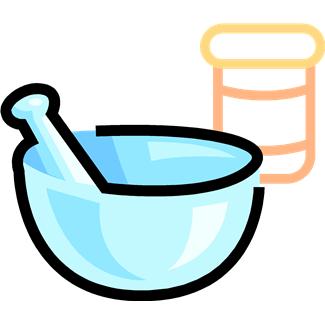 The cross-over point is obvious when we see some products sold as supplements in some countries but as drugs in others. Or consider that Belladonna, when my father was alive, was only available by prescription for gastrointestinal issues and the like. Now, it is available at the homeopathic store.
The cross-over point is obvious when we see some products sold as supplements in some countries but as drugs in others. Or consider that Belladonna, when my father was alive, was only available by prescription for gastrointestinal issues and the like. Now, it is available at the homeopathic store. There is, at least, one drug company working on a cancer cure using the human immunodeficiency virus as a one-time cure. They will not be able to administer or sell the drug more than once, because the body cannot accept the treatment more than once. They are considering giving up their profit for the good will it will bring their company and so that they can be first to “cure” childhood cancer. Maybe they wish to show they are benevolent after losing a patent case in India (which the court said was “evergreening,” a technique of making a tiny change to an already patented drug so as to push the expiration date of that patent back for, you guessed it, cha-ching, longer profitability) which would have taken a different cancer drug and made it too expensive for most people who need it in developing countries. With the court ruling, generic companies can now reproduce the drug to help the poor.
There is, at least, one drug company working on a cancer cure using the human immunodeficiency virus as a one-time cure. They will not be able to administer or sell the drug more than once, because the body cannot accept the treatment more than once. They are considering giving up their profit for the good will it will bring their company and so that they can be first to “cure” childhood cancer. Maybe they wish to show they are benevolent after losing a patent case in India (which the court said was “evergreening,” a technique of making a tiny change to an already patented drug so as to push the expiration date of that patent back for, you guessed it, cha-ching, longer profitability) which would have taken a different cancer drug and made it too expensive for most people who need it in developing countries. With the court ruling, generic companies can now reproduce the drug to help the poor.